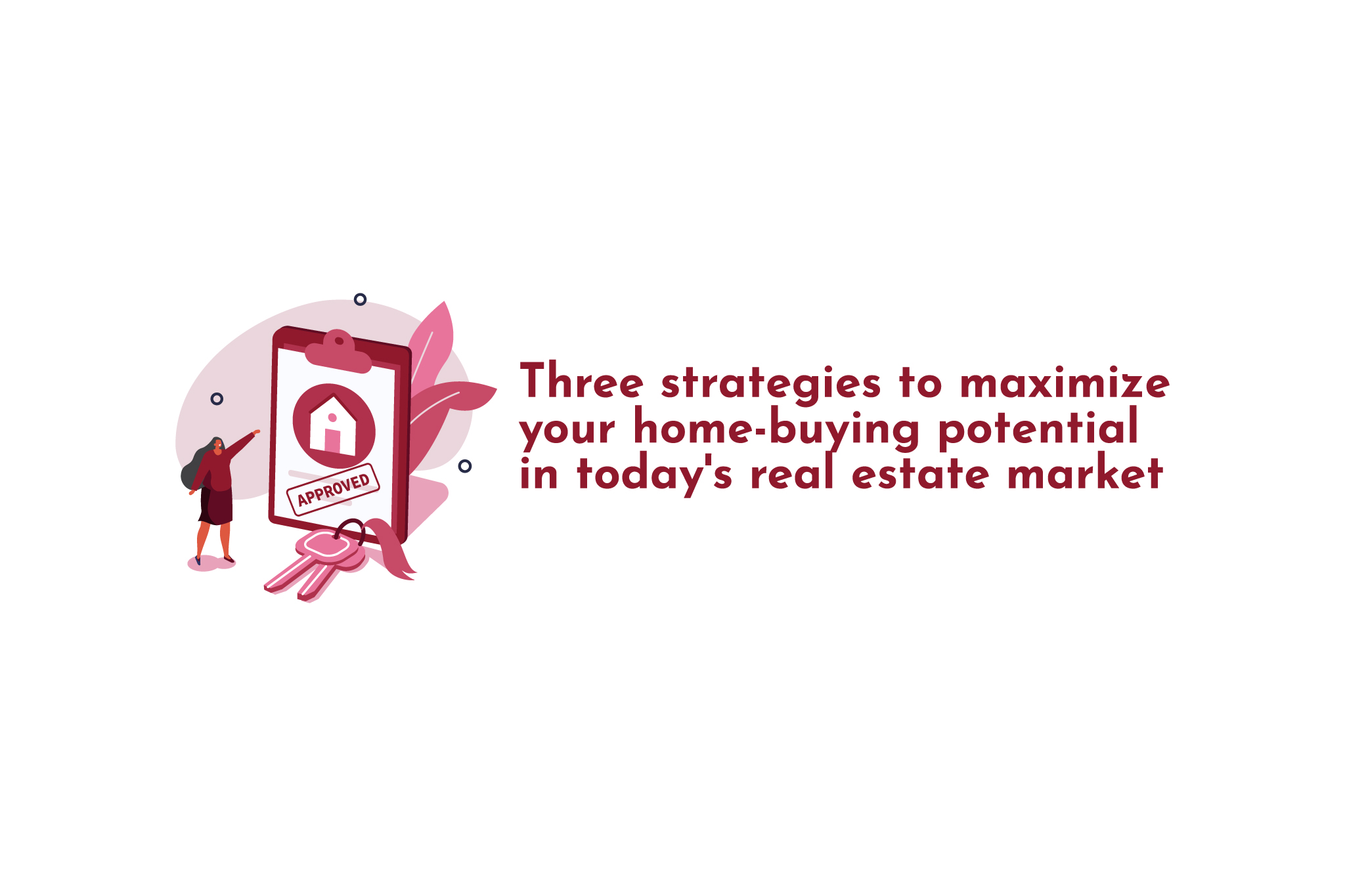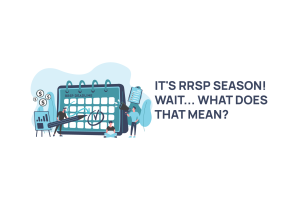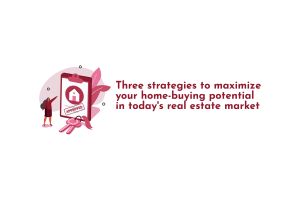With the bank of Canada signalling that rates are now at their peak, what does the rest of 2023 have in store for the Canadian real estate market? After coming off of record years that were near impossible for first time home buyers to enter the market, 2023 has been off to a slow start.
The good news is that housing costs seem to have levelled off, opening the door for first time home buyers to finally enter the market. With that in mind, here are three strategies to maximize your home-buying potential in today’s real estate market.
Get a pre-approval
Getting a pre-approval for a mortgage can enhance your buying potential even in the hottest markets. In the simplest terms, a pre-approval shows sellers how big of a mortgage loan a financial institution is willing to give you. It’s a good way to show sellers you are a serious buyer and that you have already spoken with a mortgage lender.
In order to be pre-approved for a mortgage, you have to submit an application to a financial institution, showing your income, financial assets, and existing debts. Lenders will also generally require a proof of employment as well as proof you can afford a down payment and closing costs. With a deep understanding of your finances, the financial institution can determine what size of mortgage loan you are eligible for and what interest rate they will offer you.
When a buyer accepts your bid on their property, you still have to get your mortgage loan approved. This stage in the approval process depends primarily on whether the property meets their standards (each lender has its own criteria) and whether your financial situation has remained consistent. If you have a pre-approval, the process for approving your mortgage loan is accelerated—which benefits both sides of the transaction.
Ultimately, getting a pre-approval for a mortgage is a sound strategy: not only does it give you an edge in a competitive real estate market and speed up the buying process, it also gives you a clear picture of what properties are in your budget.
Manage your credit
Credit card debt and credit scores are an important consideration when buying a house and securing a mortgage. Outstanding debts can influence the size of mortgage you are eligible for, while a bad credit score can lead to higher interest rates when you do buy a property.
When you apply for a mortgage, financial institutions take a broad look at your finances and use several formulas to determine the risk and cost of lending to you. The Gross Debt Service (GDS) ratio is used to determine whether you are well equipped to pay for all housing costs— including mortgage payments, property taxes, utilities, and fees. These costs are measured against your income to determine whether you qualify for a mortgage. In Canada, your housing expenses must not exceed 39% of your income.
But mortgage lenders also calculate the Total Debt Service (TDS), which compares your income against all your debts, including housing expenses, credit card balances, car loans, and any other loan expenses. In order to qualify for a mortgage, your TDS cannot exceed 44%, but the lower the ratio is, the more borrowing power you have.
One effective way to enhance your buying power is therefore to pay down your credit card debt before applying for a mortgage. In some cases, it can even be beneficial to use money earmarked for a downpayment to pay off credit card debt. In the eyes of a mortgage lender, being debt free will typically increase how much they will be willing to lend you, while a good credit score will qualify you for the most competitive interest rates.
Ultimately, managing your credit card debt and maintaining a good credit score, using strategies like debt consolidation and paying more than the minimum monthly payments, can improve your buying power and also save you significant money over the long-term in terms of interest. To find out more about how debt factors into your mortgage eligibility and rates, get in touch with one of our advisors today.
Know your mortgage options
A well informed buyer is generally better equipped to make the right decisions when it comes to buying a new home. And choosing the right type of mortgage can actually enhance your purchasing power. In Canada, there are two main types of mortgage: a fixed-rate mortgage and a variable-rate mortgage.
A fixed-rate mortgage is a mortgage loan that has a fixed interest rate and payments for the duration of the mortgage term. This means that the initial interest rate offered by the mortgage lender will remain the same regardless of fluctuating markets, and your monthly mortgage payments will remain consistent until your house is paid off.
A variable-rate mortgage, on the other hand, is characterized by a changing interest rate that is influenced by the market interest rate, also known as the “prime interest rate”. If you enter into a variable-rate mortgage, the lender will typically specify your rate’s variance to the prime rate. For instance, your rate might equal the prime rate +/- 0.5%.
There are pros and cons to both types of mortgages. Fixed-rate mortgages offer stability and can make it easier for you to plan your budget. Regardless of how the market performs, your mortgage rate will be locked in. On the other hand, fixed-rate mortgages tend to be higher than variable rate mortgages, so you risk paying more over the long-term.
Variable-rate mortgages don’t have the same stability as fixed-rate mortgages: instead your interest payments fluctuate based on your lender’s prime rate (which itself is based on Bank of Canada rates). With this type of mortgage, your payments will be the same month-to-month, but depending on the interest rate, more or less will be put towards the mortgage’s principal. Typically, variable-rate mortgages are more cost-effective than fixed-rate mortgages. Again, this depends entirely on market performance: if interest rates fall you will benefit, if they rise, you will be on the hook for more interest.
How does the type of mortgage affect your purchasing power? It comes down to the interest. Lenders decide how much they will lend you based on what interest rates you qualify for. Variable rates tend to be lower (at least initially) compared to fixed rates, which can open up more purchasing power at the outset. However, if you would struggle to pay higher mortgage premiums in the case of rising interest rates, a fixed-rate mortgage could be the better option.
Speak with an expert
In addition to these three strategies to help you maximize your home-buying potential, there are also other ways to improve your home buying potential. Things like making a personal connection with a seller, being flexible about the property you are looking for, and working with a real estate agent can streamline the process and get you into your dream home asap.
If you’re looking for any additional support or information about mortgages, we’re here to help. Make an appointment or book a call with us today.




